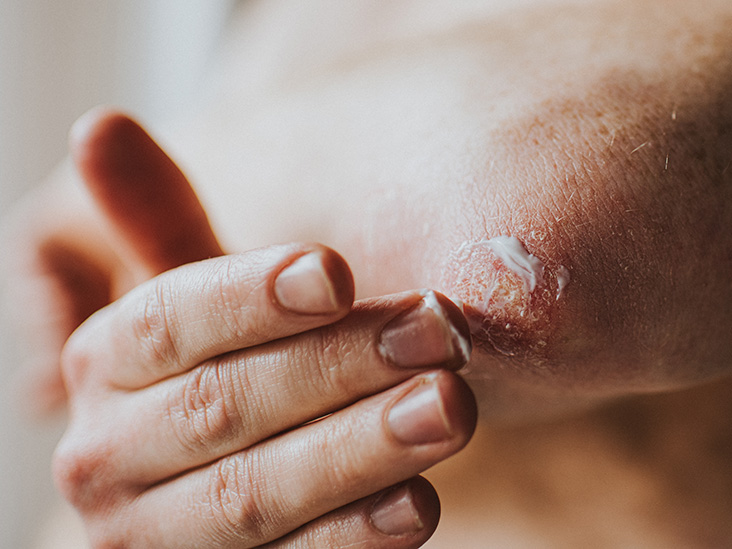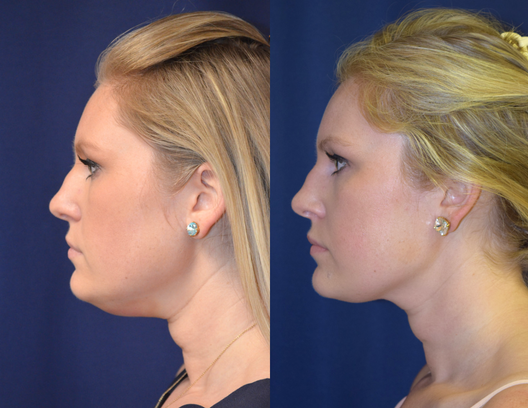Psoriasis is a skin condition that causes red and crust patches of skin that form grey or silvery-white scales. There is no cure for psoriasis. However, home remedies, treatments, send self-care strategies can prevent flare-ups from occurring, or reduce how severe they are.
It’s estimated that roughly 2 in 100 people in the UK are affected by psoriasis. While it can begin at any age, it normally develops in adults aged between 20 and 30 years old, and 50 and 60 years old. If you have been diagnosed with psoriasis, it’s important to take your doctor’s advice. Although, there are things you can do alone to help manage and prevent flare-ups, such as those listed below.
Brush Up on Your Knowledge
For those who have been diagnosed with psoriasis, knowledge is power. The more you know about this skin condition, the better prepared you’ll be in regard to what preventive measures to take to stop flare-ups from happening. While we have lots of information below which can help, you can learn more about psoriasis from Patient. They have a leaflet that explains the causes of psoriasis, symptoms to look out for, and treatments.
Keep Your Skin Moisturised
If you live with psoriasis, one of the best things you can do is keep your skin moisturised. This is a key technique because dryness can cause flares and make your skin scaling so severe, bleeding and cracks can occur. To manage psoriasis, many people benefit from using moisturisers that contain mineral oils. Although, some people may find aloe vera gel or coconut oil beneficial. This is because they contain anti-inflammatory and antibacterial properties. Moisturising your skin can reduce redness, heal your skin, and lock in water.
Get Outdoors
We’re all aware of the health advantages linked to being outdoors. When you’re under the sun, this can help you top up your vitamin D levels, reduce stress, and allow you to get in touch with nature. One major benefit of light exposure is it can help prevent or clear psoriasis plaques, provided they’re not reflective or too thick. The UVB rays slow the rapid rate of skin growth which appears as psoriasis. However, it must be noted that too much sun exposure can cause sunburn and skin damage. Therefore, limiting your time outdoors is key. As long as your skin is able to tolerate the exposure, you can slowly boost your sun exposure by 30 seconds to 1 minute every day.
Use a Humidifier
Having a home humidifier brings many benefits. These include reducing snoring, preventing influenza, and most importantly, keeping your skin moist. A home humidifier is particularly useful during the winter as it keeps the air moist and can reduce psoriasis symptoms. When you purchase a humidifier, you have complete control over the environment of your property. You can increase the moisture in the air to a humidity level that suits you. This should be between 40 and 60%. Once you begin using a humidifier, you should notice your skin naturally absorbs hydration, which can relieve dry skin.
Lower Stress Levels
When it comes to potential triggers for psoriasis, stress may be one of them. High levels of stress can lead to flare-ups and cause all kinds of symptoms, such as rashes, red patches of skin, and nail changes. Thankfully, there are tactics you can try to reduce stress. Doing so may help in preventing flare-ups. This includes avoiding stressful situations, as well as trying meditation, yoga, and breathing exercises. Some people may benefit from counselling or therapy for their psoriasis too. If you’re struggling to combat stress, it’s wise to talk to your doctor.
Eat a Nutritious Diet
Like with many areas of health and wellbeing, your diet plays a key role in psoriasis management. Now is the time to pay attention to what you eat, especially if you’re getting frequent flare-ups. A psoriasis diet should be rich in detoxifying and anti-inflammatory foods, like fruit, seeds, and nuts. Some foods must be avoided as they can induce inflammation. These include processed products and red meat. When you start eating more whole grains, vegetables, fatty fish, and seeds, you should notice a decrease in psoriasis flare-ups. Although there is no diet that will cure psoriasis, changing your eating habits can certainly help reduce symptoms of this skin condition.
Look After Your Scalp
If you have psoriasis that affects your scalp, it’s vital that you keep the area moisturised. There are ways you can reduce psoriasis symptoms on the scalp, such as by using a conditioner after shampooing, and using cold water, cold packs, or wet towels on itchy spots. For those who have mild scalp psoriasis in a few areas, your GP or dermatologist may inject steroids directly into affected areas. Make sure to wash your hair each time you bathe or shower. Also, look for over-the-counter shampoos that include tar, salicylic acid, or ketoconazole. These ingredients can help treat scalp psoriasis.
Stop Smoking
There are no health benefits linked with smoking. While we’re aware tobacco use increases your risk of cancer, this habit can also heighten your chance of developing psoriasis in the first place. If you already have this skin condition, it can increase the severity of the disease too. One of the best things you can do today is quit smoking for good. Your skin will benefit enormously, and you may find psoriasis symptoms aren’t as severe.
Monitor Alcohol Consumption
If you’re on a treatment plan for psoriasis, alcohol can hinder how effective it is. Your treatment may not work as effectively as it should, or you may encounter fewer remissions (periods of time without flare-ups). There are a number of benefits attached to lowering your alcohol intake if you’ve got psoriasis. These include increased remissions, a lower risk of developing fatty liver disease, as well as a lower chance of getting liver damage because of psoriasis medication.
Join a Support Group
Living with psoriasis can be challenging. Many people feel like they’re the only person in the world that has a skin condition. However, this isn’t the case. A quick Google search will help you find forums and communities full of people living with psoriasis. You can become a member of one and engage with those in the same boat as you. This can be a great opportunity to share your experience, get advice, and motivate each other. You may end up making lifelong friends!
Prevent Skin Injuries
Skin injuries may trigger the development of psoriasis lesions in parts where they’re otherwise uncommon. This effect is known as the Koebner phenomenon. The best way to prevent psoriasis flare-ups is by taking extra caution when shaving or cutting your nails, avoiding piercings or tattoos, and protecting against insect bites. Other methods include wearing gloves when gardening, not taking part in dangerous sports, and being extra careful when you prepare food.
While there is no current cure for psoriasis, there is a range of treatments and lifestyle changes you can make that can improve symptoms and prevent flare-ups. If you have any questions or find no solace in doing any of the above, it’s advised to speak to your GP. They can offer expert support and guidance on psoriasis, as well as other methods that may help in managing the skin condition and reducing flare-ups.



